E-Safety Policy
At Victoria English School, we are committed to ensuring the safety of our students, staff, and visitors when using digital technologies. This E-Safety Policy outlines the steps we take to promote safe and responsible use of the internet and digital devices in the school environment. Our goal is to foster a safe, secure, and respectful digital environment where students can develop their skills without compromising their safety.
1. Purpose of the E-Safety Policy
The purpose of this policy is to:
- Ensure the safety and well-being of all users when accessing and using digital technologies at Victoria English School.
- Promote responsible use of the internet and digital tools among students and staff.
- Prevent online bullying, harassment, and any other form of harmful online behavior.
- Provide guidelines and procedures for managing and addressing e-safety concerns.
2. Scope
This policy applies to all students, staff, contractors, and visitors who use digital devices and access the internet at Victoria English School, including personal and school-provided equipment. It covers the use of computers, tablets, smartphones, email, social media, and any other digital communication tools.
3. Responsibilities
- School Management: The management team is responsible for ensuring that e-safety measures are in place, including staff training, risk assessments, and appropriate policies.
- Staff: All staff members are responsible for promoting safe online behavior and ensuring that students understand and follow the rules. They must report any e-safety concerns to the designated E-Safety Officer.
- Students: Students are responsible for using digital technologies safely, responsibly, and respectfully. They must follow the school’s rules and report any concerns to staff immediately.
- E-Safety Officer: The designated E-Safety Officer at the school is responsible for overseeing the implementation of the e-safety policy and addressing any issues or concerns related to digital safety.
4. Acceptable Use of Technology
All students and staff must adhere to the following guidelines:
- Respect others: Students and staff should treat others with respect online, just as they would in person. Bullying, harassment, or discriminatory behavior will not be tolerated.
- Security and Privacy: Users should not share personal information (such as passwords, home addresses, phone numbers) without the permission of a teacher or school official. Students should also respect the privacy of others.
- Use of School Devices: School devices should be used for educational purposes only. Personal use of school devices during class time or school activities should be kept to a minimum.
- Social Media: Students must not engage in any activity on social media that could be harmful to themselves or others. Social media activity should comply with the school’s expectations of behavior, both in and out of school.
- Cyberbullying: Any form of online bullying or harassment will be taken seriously and dealt with according to the school’s Anti-Bullying Policy. Students should immediately report any bullying incidents to a teacher or the designated E-Safety Officer.
5. Internet Access and Monitoring
- Safe Browsing: All internet access at the school is filtered to block inappropriate websites and content. However, students should be aware that no filter is 100% effective, and they should report any inappropriate content they encounter.
- Monitoring Usage: The school reserves the right to monitor the use of its network and devices. Internet use may be logged, and any misuse will be investigated.
- Restricted Access: Access to certain websites, including social media and games, may be restricted during school hours to ensure that students focus on their studies. Personal accounts and devices may not be used during class time unless permitted by a teacher.
6. Email and Communication
- Email Use: School-provided email accounts should only be used for academic purposes. Students should not share their email passwords or use email to send inappropriate content.
- Communication with Teachers: Students are encouraged to communicate with teachers and staff through official school email addresses. They should not engage in personal communication via email.
- External Communication: Students must not communicate with strangers online or accept friend requests or messages from unknown individuals on social media.
7. Mobile Devices and Personal Technology
- Use of Personal Devices: Students may bring personal mobile devices (e.g., smartphones, tablets, laptops) to school. However, these devices should be used responsibly and in accordance with the school’s rules. Personal devices may not be used during class time unless explicitly allowed by a teacher for educational purposes.
- Security of Devices: Students and staff are responsible for ensuring that their personal devices are secure. This includes keeping devices locked and not sharing passwords with others.
8. Reporting E-Safety Concerns
Any student or staff member who has concerns about online safety, including potential risks, inappropriate behavior, or cyberbullying, should report it to the designated E-Safety Officer or a teacher. All reports will be taken seriously and investigated promptly.
Students can report concerns by:
- Speaking directly to a teacher.
- Sending an email to the designated E-Safety Officer at e-safety@victoriaenglishschool.com.
- Using the anonymous reporting box located at the school entrance.
9. Consequences of Misuse
Misuse of digital technologies, including violating this policy, can result in:
- Temporary or permanent suspension of internet access.
- Disciplinary action as per the school’s behavior policy.
- Reporting to external authorities, if necessary, especially in cases of cyberbullying or illegal activity.
10. E-Safety Education and Training
The school will provide e-safety training for both students and staff. Students will receive guidance on how to stay safe online, understand the importance of privacy and security, and learn how to behave responsibly in the digital world.
Staff will receive ongoing training on how to manage e-safety issues, prevent cyberbullying, and promote a positive online environment for students.
11. Review of Policy
This policy will be reviewed annually to ensure it remains up-to-date with technological advancements and relevant legislation. Any changes or updates will be communicated to students and staff.
Contact Information
For any concerns or queries regarding e-safety, please contact:
E-Safety Officer:Sergio Triviño
Email: admin@victoriaschool.uk
Phone: +44 7766 636270

